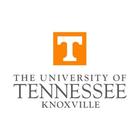The Department of Geography provides a comprehensive program that reflects the discipline's three main areas - human geography, physical geography, and spatial analysis. The department's courses allow students to explore the linkages between human activities and natural systems. Students taking geography courses should develop factual knowledge, critical thinking, and analytic skills. Training in geography allows students to know where things are located, why they are located where they are, how and why places differ, how human activity shapes and is shaped by the natural environment, and how to analyze human-environment interactions.Courses in the Space, Society and Culture concentration study how people, groups and communities create distinctive landscapes, how they claim, occupy, and even struggle over places, and how they identify with places and animate our surroundings with meaning. Students learn to critically examine their own culture and others ways of life, thereby gaining a greater understanding of themselves and the world at large. Skills developed in this concentration can be applied to employment in education, government and international organizations, urban planning, non-profit organizations, travel and tourism, businesses, international trade, and other fields. Universal Tracking (uTrack) is an academic monitoring system designed to help students stay on track for timely graduation. In order to remain on track, students must complete the minimum requirements for each tracking semester, known as milestones. Milestones include successful completion of specified courses and/or attainment of a minimum GPA. uTrack requirements only affect full-time, degree-seeking students.






